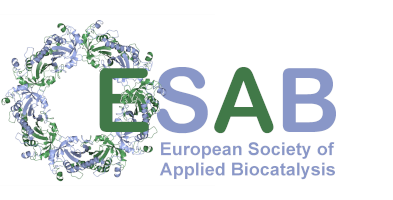Metabolic Engineering Tools for Taming Environmental Bacteria
Abstract
Environmental bacteria gained attention as promising chassis for Metabolic Engineering and Synthetic Biology. Their robustness and versatility in regards to their metabolisms holds potential for many applications. This versatility is exploited for degradation and production of numerous chemicals, while the robustness makes them ideal for big-scale fermentation. However, the toolbox for engineering and manipulating environmental bacteria is still lacking substantially behind the ones of model organisms. Therefore, we focus on developing new tools, and advance and adapt existing ones. Here, we will show several tools for genome engineering in Pseudomonas putida. Firstly, fast streamlined homologous recombination through synthetic control of plasmid replication. This allows targeted insertions, mutation and deletions. Secondly, multiplex base editing for targeted mutation of single bases. Additionally, we present a toolbox to tailor expression of target genes. Taken together, these approaches allow high-speed engineering of a broad range of bacteria and construction of fine-tuned genetic circuits.
About the Speaker(s)
 Daniel Christoph Volpe received his Bachelor (2010) and Master (2012) from the Technical University of Munich (Germany) in molecular biotechnology. Afterwards, he worked at the Fraunhofer Institute for Molecular Biology and Applied Ecology IME, where he investigated terpenoid synthesis in E. coli for industrial application in collaboration with the Max Planck Institute for chemical ecology. Daniel Volpe received his PhD from RWTH Aachen University in 2017. The main topic of the thesis was isotopic non-stationary flux analysis of a secondary metabolic pathway. In 2017, he started his Postdoc on diverse metabolic engineering topics in the hostorganism Pseudomonas putida at the Systems Environmental Microbiology group at the Danish Technical University. The group is led by Pablo IvánNikel. Since 2021, Daniel Volpe is a tenure-track researcher in this group. He authored 20+ publications with an H-factor of 12.
Daniel Christoph Volpe received his Bachelor (2010) and Master (2012) from the Technical University of Munich (Germany) in molecular biotechnology. Afterwards, he worked at the Fraunhofer Institute for Molecular Biology and Applied Ecology IME, where he investigated terpenoid synthesis in E. coli for industrial application in collaboration with the Max Planck Institute for chemical ecology. Daniel Volpe received his PhD from RWTH Aachen University in 2017. The main topic of the thesis was isotopic non-stationary flux analysis of a secondary metabolic pathway. In 2017, he started his Postdoc on diverse metabolic engineering topics in the hostorganism Pseudomonas putida at the Systems Environmental Microbiology group at the Danish Technical University. The group is led by Pablo IvánNikel. Since 2021, Daniel Volpe is a tenure-track researcher in this group. He authored 20+ publications with an H-factor of 12.
